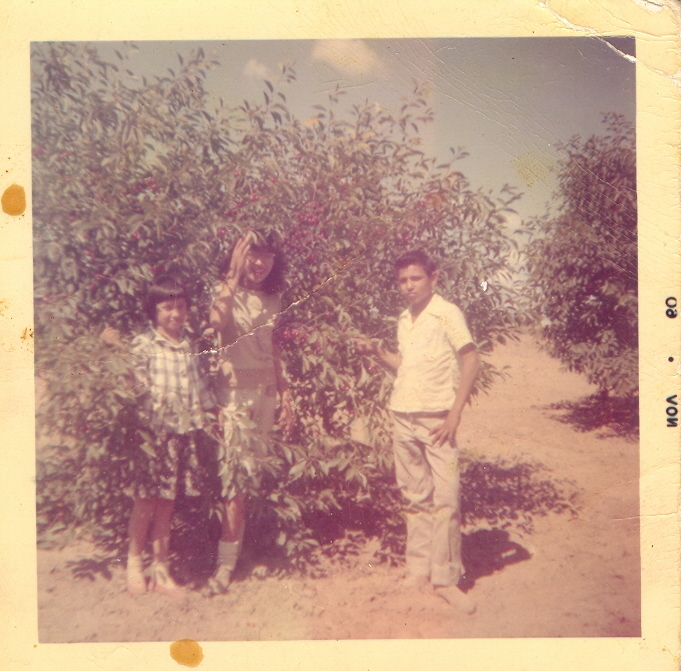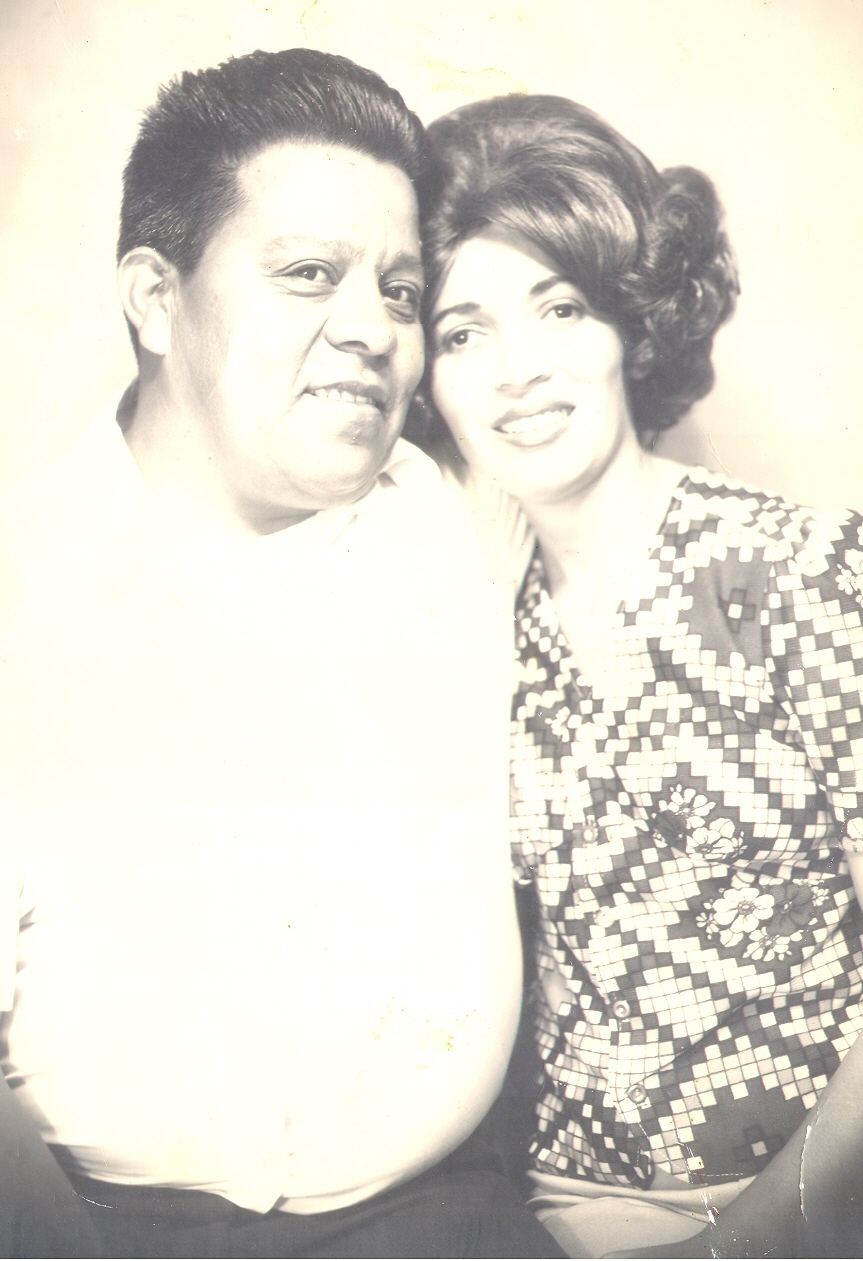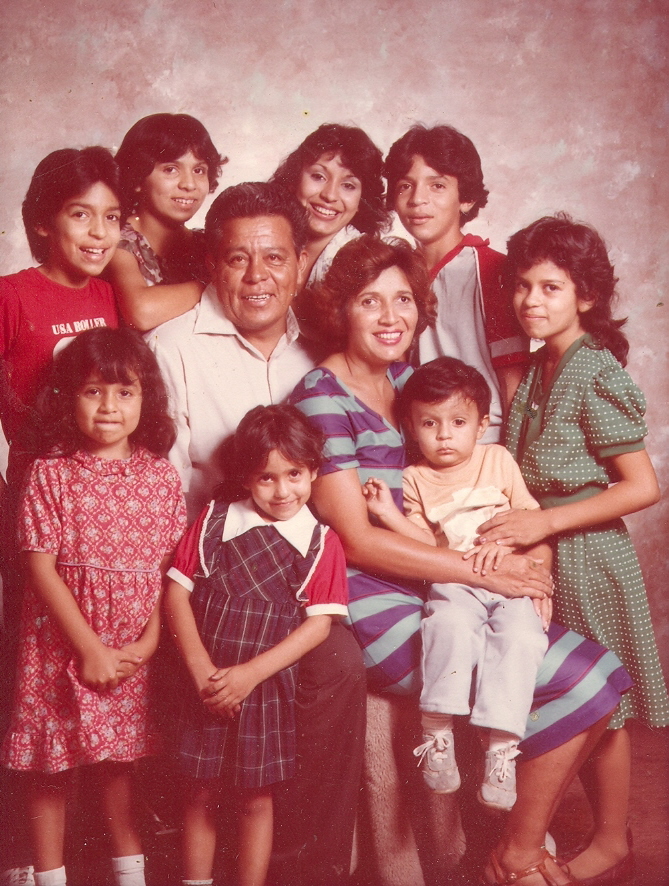TRANSCRIPTION
What was it like growing up with 12 brothers and sisters?
"Well, it was very crowded mija especially in a small house. My sisters and I use to fight for the best dress to wear. I was the oldest girl, so I use to tell them (pause) I'm older than you are! So I guess I had the advantage when it came to wearing the best clothes. All of us had to work to help my parents out as well."
How did your sight affect your from doing things in life?
"My Left eye has been like this since birth. I don't recall it affecting my life in a bad way. I guess because I got adjusted to it. There was a time when my dad was teaching me to drive; my mother was scared that I wouldn't be able too. But that didn't stop me at all. I still drive perfectly fine till this day."
What were some of your childhood memories?
"There is one particular memory of mine growing up. I remember when I was (pause) 8 or 9 when it was time for all us to pack up and leave to Racine, Wisconsin. The owner of the land had given my family really poor housing. It was a little grey barn that didn't have a door, you could see right through everything! My mom and dad said that it was because the man was a racist, he would make sure that we weren't doing anything wrong. Like stealing the vegetables and fruits that we pick with our hands all day, from sunrise to sun down. My mothers always used to say that no Women should get down on their knees to work a job that hardly provided my family with enough food. My father hated Wisconsin because it was little pay compared to Michigan, where we use to pick the fields too.


What kind of crops did you'll pick in the fields?
"In Hart, Michigan we use to pick the fruits like apples, cherries, peanuts, pickles and strawberries. In Wisconsin it was pumpkins, squash and pretty much the same fruit. We use to travel all around San Antonio to pick the crops for money. In corpus we just picked cotton because there is so much of it."
What were your dreams or a certain occupation you wanted to do?
"Uh, well out of all my brothers and sisters, I would be the only one to complain about working in the fields. My hands would get all cut up from picking the fruits off the vine. Mother would tell me that I was just too girly and I better marry a rich man to not work hard! (Laugh...) it was either that option or become a nurse. I wanted to take care of the sick and hurt, whenever one of my family members got a cut I would bandage them up, pretending to be a nurse. But it was just a dream, especially since I hardly went to school."
How do you feel about women carrying out the role of being a house wife?
"In 1961 I was married to your grandfather, Alfonso Ibarra and I did work at miller's curtain at the time. And as soon as I was pregnant 3 years later I than took on the role as a housewife. But I know at that time a lot of women were trying to change the world. They no longer wanted to be a shadow behind their husbands."

How do you think Woman's roles have changed now?
"Well at the time woman were trying to change the law so they could be treated equally. But as of now, women are ruling the world! They do jobs that are better than men could do. It's quite impressive to have that opportunity to go to college and have a good job."
 Is there anything in your life you would change?
Is there anything in your life you would change?
"I would change nothing except getting an education. I would want a very good education. My life has been fulfilled, my own kids have had their struggles but my grandchildren are the bright ones. I wish we had the opportunity to graduate and go to college."
How is you and your husbands relationship now that you'll are older?
You're grandpa and i have both had problems like any marriage does but he has always been the one that i was going to spend my life with. We are very happy to have seen our grandchildren grow up and our Great Grand children too.Like i said our life is fullfilled!.
How did you take care of your 8 children?
I had to put them before me. I gave up working to take care of them. I did everything for them like a typical housewife would. I cooked, cleaned and made sure they were well behaved.If they weren't, their father would punish them or hit them with a belt.

Thank you grandma for taking the time to do this interview
Your welcome Mija. I love you. I hope you're doing fine in school.

